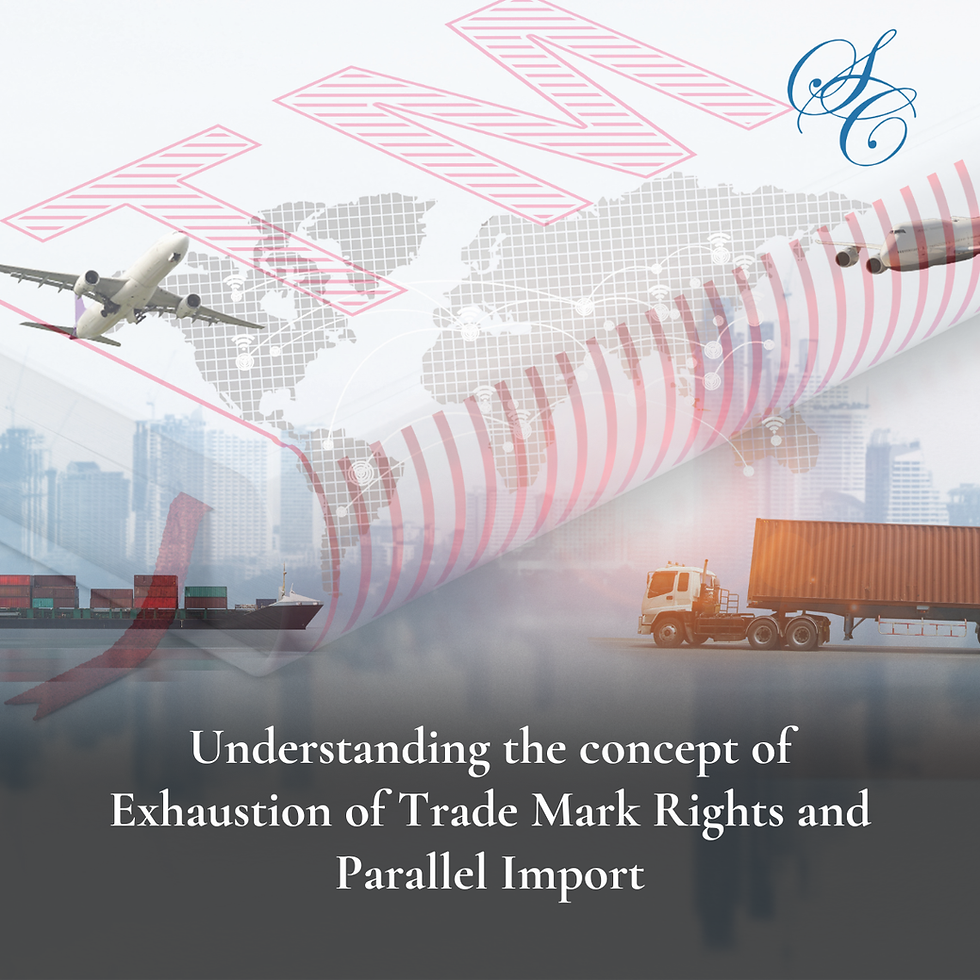Delhi High Court Rules on Jurisdiction Where Plaintiffs Sell Goods via the Internet!
- Sarwajeet Singh
- Nov 14, 2014
- 4 min read
On 15 October 2014, a division bench of the Delhi High Court held, in World Wrestling Entertainment v. M/S Reshma Collection & Ors, FAO(OS) 506/2013, that in cases where a plaintiff sells goods via its web site, a buyer’s place of residence can determine jurisdiction.
By way of background, in October 2013, a single judge bench of the Delhi High Court had held that the court did not have jurisdiction to decide a trade mark infringement and passing-off case case involving World Wrestling Entertainment, Inc. (‘WWE”), a U.S. based entertainment company and a Mumbai-based defendant, Reshma Collections, which was alleged to be selling merchandise bearing WWE’s marks. The single judge had held that Delhi High Court did not have jurisdiction because WWE did not carry on business in Delhi. World Wrestling Entertainment v. M/S Reshma Collection & Ors. CS (OS) 1801/2013.
WWE appealed the single bench’s decision. The division bench of the High Court reversed the decision.
Section 134(1) of the Trade Marks Act, 1999 (“Act”) states that a suit for infringement or passing-off must be instituted in a court that is not inferior to a District Court that has jurisdiction to try the suit. Section 134(2) of the Act states that such a suit must be brought in a court within the local limits of whose jurisdiction, at the time of institution of the suit, the person instituting the suit actually or voluntarily resides, or carries on business, or works for gain.
Thus, WWE contended that the Delhi High Court has jurisdiction in this lawsuit for trade mark infringement or passing-off because its television programs were broadcast in Delhi, it sold books and merchandise in Delhi and its goods and services are sold to Delhi consumers via its web sites. The single bench of the Delhi High Court held that these factors were insufficient to confer jurisdiction on the court.
The division bench stated that the entire case hinges on the interpretation of the phrase “carries on business” in Section 134 of the Trade Marks Act. The Supreme Court’s decision in Dodha House v. SK Maingi, 2006 (32) PTC, laid down the meaning of “carries on business.” In the case, the Supreme Court had held that a person is said to carry on business at a place when he has an “interest in a business at that place, a voice in what is done, a share in the gain or loss and some control at that place”. Dodha also recognized that a person may carry on business at a place by himself or through an agent or a manager. However, in such cases, it is necessary that (i) the agent must be a special agent who attends exclusively to the business of the principal and carries it on in the name of the principal and not as a general agent who does business for any one that pays him; (ii) the person acting as agent must be an agent in the strict sense of the term; and (iii) the essential part of the business must be performed at that place.
Here, the plaintiff, WWE, does not have an agent or manager in Delhi. Thus, the first two conditions of Dodha are not relevant. The court then considered the third conduction, namely, whether an essential part of WWE’s business is performed in Delhi in light of how business is done over the Internet. If a customer in Delhi wishes to purchase goods/services from the plaintiff’s web site, the customer must access the web site on his or her computer in Delhi, must place the order on the web site from Delhi, and make payment either through a credit/ debit card or through a cash card from Delhi. Ultimately the goods/services are delivered to the customer in Delhi. The court then focused on the following question, namely, that when a transaction takes place over the Internet, where is the contract concluded?
Holding that the Supreme Court’s decision in Bhagwan Goverdhandas Kedia v. Girdharilal Parshottamdas & Co. 1966 AIR 543 was instructive, the court stated that the plaintiff’s web site in this case is an invitation to offer, not an offer itself. It becomes an offer when the invitation is accepted by the consumer residing in Delhi, i.e., when a consumer in Delhi places an order. When through the mode of the software and browser, the transaction is confirmed and payment made to the plaintiff, the customer accepts the offer at Delhi. Since the transaction is instantaneous, the acceptance of the offer by the web site is instantaneously communicated to its customer via the Internet at Delhi. As the offers are made by customers at Delhi, subject to confirmation/ acceptance of the appellant/ plaintiff through its website, the payment transaction would emanate from Delhi, court held that, to a certain extent, WWE is carrying on business at Delhi. The court concluded by stating that “ because of the advancements in technology and the rapid growth of new models of conducting business over the internet, it is possible for an entity to have a virtual presence in a place which is located at a distance from the place where it has a physical presence.”
Thus, the ruling of the division bench makes it clear that retailers can bring trade mark infringement lawsuits where they have made sales.




Comments